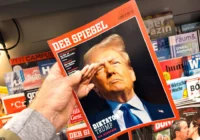The outlook for the mining sector is likely to improve, but the uncertainty surrounding Zambia’s election brings with it the risk of violence.
With just a day until Zambia’s August 11 general election, the outcome of the vote remains far from certain. Of the nine presidential candidates standing in the election, just two represent a credible chance of victory: incumbent President Edgar Lungu of the governing Patriotic Front (PF), and Hakainde Hichilema, the candidate of the United Party for National Development (UPND).
Both candidates led in the presidential by-election of January 2015—which was called after President Michal Sata died in office in October 2014—but neither has yet drawn a definitive lead. In the 2015 election, Lungu won by a minimal margin of just 27,000 votes, or 1.6%, and he has faced significant challenges in maintaining his lead.
Since the last election, Zambia has seen a major recalibration of its political landscape with prominent defections from the PF. Lungu, who is from the east of the country, has replaced much of the PF’s core leadership, leaving the party’s traditional northern Bemba-speaking constituency without high-level representation. The UPND, which is looking to change the perception that it can only win votes in the south of the country, has made a concerted effort to appeal to Bemba voters in northern provinces, with the support of several key northern PF defectors. These include Sata’s son, Mulenga Sata, and former Defense Minister Geoffrey Bwalya Mwamba, who is running as Hichilema’s vice presidential candidate.
To overcome these challenges, Lungu will have to appeal to voters from other ethnic groups, notably those represented by smaller parties and the former ruling party, the Movement for Multiparty Democracy (MMD), whose traditional support base is in northwest, central and eastern provinces. However, the MMD is split between those supporting its new president, Felix Mutati—who backs Lungu—and another faction under Nevers Mumba, who backs Hichilema.
There have also been signs of a disagreement between Lungu and former President Rupiah Banda (2008-11), a key MMD figure who played an influential role in Lungu’s 2015 election. Banda has played a minor role in the current PF campaign, and the increasing factionalism within the MMD has made it uncertain how effective the party will be in mobilizing voters in Lungu’s favor.
The fragmentation of Zambian politics has created a highly uncertain electoral outlook with a clear potential that neither candidate will be able to secure enough votes for a first-round victory. Under constitutional changes implemented in January 2016, a run-off vote is necessary if no candidate secures a 50% plus one majority. No presidential candidate has secured this required number of votes in any of the last three general elections or two presidential by-elections, and the narrow lead Lungu held over Hichilema in 2015 suggests this is also unlikely this time.
Electoral fraud could threaten the integrity of the vote and affect the outcome. There have been widespread allegations of irregularities, including alleged bias at the electoral commission and constitutional court in favor of the incumbent. On June 21, the independent newspaper The Post was shut down over alleged tax arrears, in a case that has been criticized by the opposition, human rights groups and foreign donors as politically motivated.
Although it is difficult to predict whether political interference in the democratic process will be sufficient to secure Lungu a first-round victory, existing accusations certainly increase the risk of the opposition rejecting the final outcome in the event of defeat.
More positive outlook for mining sector
Following several years of regulatory uncertainty and difficult operating conditions, the outlook for the mining sector is likely to improve once the election process is finalized, as the winning candidate reacts to economic pressures to improve the competitiveness of the mining sector by reducing taxes and improving power generation.
Neither Hichilema nor Lungu is beholden to a particular ideological position—though Lungu has previously backed populist policies to the detriment of the mining sector—and both are under pressure to increase investment in the mining sector, which contributes around 55% of state revenues. Falling commodity prices have led to more than 10,000 job losses in the Copperbelt mining hub, which both candidates will be under pressure to resolve.
Reflecting these economic realities, Lungu has already been forced to roll back on some of the more populist policies introduced at the beginning of his presidency. In May 2016, the government introduced a scaled mineral royalty to replace a far more punitive fiscal regime introduced by Lungu in January 2015 that had sparked outcry from miners. Under the earlier fiscal regime, royalties were set at 20% for open-pit mining and 8% for underground mining, which were later shifted to 9% and 6% respectively in June 2015. With the new scaled royalty framework, royalties will be set at 4% when the copper price is below $4,500 per ton, 5% between $4,500 and $6,000 per ton, and 6% when the price is above $6,000 per ton.
In light of Zambia’s continuing economic difficulties, Lungu will likely maintain this more conciliatory position toward the mining sector once the vote has passed. Although Zambia’s Chamber of Mines welcomed the introduction of the scaled royalties system, it continues to lobby for a more competitive tax regime to reflect the high costs of doing business that are associated with Zambia’s weak infrastructure and power generation capacity.
Hichilema, meanwhile, has traditionally taken a more business-friendly stance than his political rival, criticizing the government’s inconsistent fiscal policy and calling for a more competitive tax regime. In either outcome, the need to attract fresh mining investment will likely result in greater incentives, including further tax cuts to bring Zambia’s royalty rates closer to comparable economies (neighboring Democratic Republic of Congo’s copper tax is 2%, for example), and a focus on diversifying electricity sources to improve power generation capacity.
High risk of violence, particularly if result is disputed
Past Zambian elections have shown a high propensity for violence between rival cadres of different parties, and the coming election is likely to see clashes both during and after the vote. There have already been several incidents of violence reported, mostly between rival PF and UPND supporters in the capital Lusaka, the mining hub of Copperbelt and the Bemba-speaking northern provinces, particularly Muchinga. In June, the inspector general of police warned of a “proliferation” of weapons being carried by the public, while police have also used live fire on political activists during periods of unrest, illustrating the high risk to bystanders.
The reports of electoral fraud and the closely fought nature of the election will increase the likelihood of further clashes, particularly in the event the result is disputed by the losing side. Although these will mostly continue to be concentrated among rival supporters, a disputed outcome raises the possibility of a much more severe stand-off.
Lungu has already stated he is prepared to forcibly put down any opposition supporters who contest the result and, in a possible signal that he is preparing for worsening electoral unrest, he appointed his ally air force commander, Eric Mwaba Chimese, as joint military head of staff in May. That role is normally a position reserved for the army command. The allocation of the post to a Lungu loyalist has been seen as an effort to tighten his grip on the security services ahead of possible unrest after the vote.
Hotspots for unrest will continue to focus on Copperbelt and northern provinces, Lusaka and the UNPD’s Southern Province. Although most of the unrest will focus on attacking rival supporters, polling stations and government offices and vehicles, rather than directly at the mining sector, there is a strong risk of roadblocks and other disruption that could impact staff safety and movement to and from facilities.
*[This article is based on a report published by Protection Group International.]
The views expressed in this article are the author’s own and do not necessarily reflect Fair Observer’s editorial policy.
Photo Credit: Kylieellway
 We bring you perspectives from around the world. Help us to inform and educate. Your donation is tax-deductible. Join over 400 people to become a donor or you could choose to be a sponsor.
We bring you perspectives from around the world. Help us to inform and educate. Your donation is tax-deductible. Join over 400 people to become a donor or you could choose to be a sponsor.
Support Fair Observer
We rely on your support for our independence, diversity and quality.
For more than 10 years, Fair Observer has been free, fair and independent. No billionaire owns us, no advertisers control us. We are a reader-supported nonprofit. Unlike many other publications, we keep our content free for readers regardless of where they live or whether they can afford to pay. We have no paywalls and no ads.
In the post-truth era of fake news, echo chambers and filter bubbles, we publish a plurality of perspectives from around the world. Anyone can publish with us, but everyone goes through a rigorous editorial process. So, you get fact-checked, well-reasoned content instead of noise.
We publish 2,500+ voices from 90+ countries. We also conduct education and training programs
on subjects ranging from digital media and journalism to writing and critical thinking. This
doesn’t come cheap. Servers, editors, trainers and web developers cost
money.
Please consider supporting us on a regular basis as a recurring donor or a
sustaining member.
Will you support FO’s journalism?
We rely on your support for our independence, diversity and quality.






